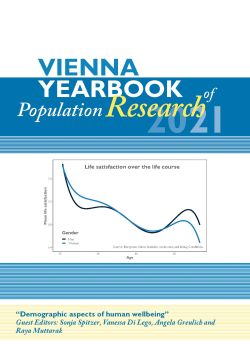
Vienna Yearbook of Population Research 2021, pp. , 2021/06/09
Demographic Aspects of Human Wellbeing

Subjective well-being (SWB) is an overall evaluation of the quality of a person’s life from his or her own perspective. One common method of assessing this construct requires respondents to think about their life as a whole and to provide a “global” evaluation that summarizes across life domains or affective experiences over extended periods of time. The validity of these global measures has been challenged, however; and experiential measures, which ask respondents to report on their momentary evaluative experiences many times over a constrained time period, have been suggested as a more valid alternative. This paper addresses the empirical evidence for one important challenge to global measures: the possibility that temporarily salient information overwhelmingly influences global judgments, reducing their reliability and validity. This paper critiques prior evidence for this challenge and presents new concerns about the assumed validity of the proposed alternative: experiential measures
Keywords: Subjective well-being; Life satisfaction; Measurement; Experience sampling method; Day reconstruction method